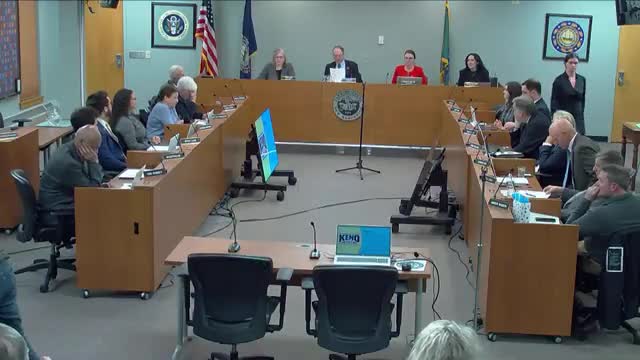Keene holds informational hearing on Keno ahead of Nov. 4 ballot
Get AI-powered insights, summaries, and transcripts
Subscribe
Summary
The Keene City Council on Oct. 16 held a statutorily required informational hearing on a Nov. 4 ballot question that asks, “Shall we prohibit the operation of Keno games within the city?”
The Keene City Council on Oct. 16 held a statutorily required informational hearing on a Nov. 4 ballot question that asks, “Shall we prohibit the operation of Keno games within the city?” The council previously voted on Sept. 4 to place the question on the municipal general-election ballot; the hearing was held to provide notice and facts to voters rather than to change the placement of the question.
The question matters because a recent change in state law (House Bill 737) makes Keno allowed by default in municipalities starting June 1, 2027, unless voters prohibit it. City Attorney (unnamed at the hearing) told the council the hearing is a statutory requirement intended to inform voters and that the outcome will be decided at the ballot box.
New Hampshire Lottery Commissioner Charlie McIntyre described how Keno works and the state and local financial effects. “Keno gets about 3 and a half million dollars a year of adequacy grants from the New Hampshire lottery revenues for the [Education] trust fund,” McIntyre said, and said the lottery system generated about $207 million for the state last year. McIntyre said Keno is sold by retailers such as bars and convenience stores, is typically played at a self-service device, and that most prizes are under $500. He said the commission’s research suggests many retailers saw increased foot traffic after offering Keno and that statewide there have been “virtually none” of the law-enforcement problems that some opponents feared.
Business owners and residents who testified gave contrasting views. Dory Maston, who said she owns the Poor House bar downtown, urged councilors to consider how Keno can support small businesses during slow periods: “This is an opportunity now for us, all of us downtown, to get a small piece of the pie, even though it’s small, and share it amongst all of us,” Maston said. Warren Steinberg, a Keene resident who also said he owns a bar, told the council Keno can help struggling downtown businesses, particularly during the two-year construction project he described as “the big dig.”
Other residents urged voters to reject Keno. Peter Hansel, a Keene resident who noted his civic involvement with the Einbeck exchange, said Keene has a strong culture of arts and community events and “I don’t think Keno is in our culture.” Bridget Hansel said Keno’s instant-gratification format raises addiction concerns. Jim Putnam said residents have rejected Keno twice before and urged voters to do so again.
Councilors asked questions about ballot wording and local regulatory authority. Councilor Philip M. Jones and others highlighted that the ballot question is framed as “Shall we prohibit…” — meaning a “yes” vote would prohibit Keno — which some said could confuse voters. Councilor Michael J. Remy and Councilor Brian J. Lake asked whether the city could regulate hours or locations; Commissioner McIntyre said zoning or local land-use rules would be the vehicle to limit where Keno appears, but he cautioned that the legal interaction with zoning has not been widely tested and the Lottery Commission honors local zoning where it applies.
The hearing included clarifications about where Keno can be sold under state law: McIntyre said establishments with an active pouring license (bars and similar licensed establishments) may have Keno monitors; convenience stores can sell tickets but cannot use the monitor. McIntyre also said the Lottery Commission does not accept credit cards for Keno sales.
No vote was taken at the hearing; the council’s only remaining role is to inform the public. The ballot question will appear on the Nov. 4 municipal general-election ballot, and if a majority votes yes the city would be prohibited from allowing Keno; if a majority votes no, Keno would be permitted within the city subject to state and local regulation.
